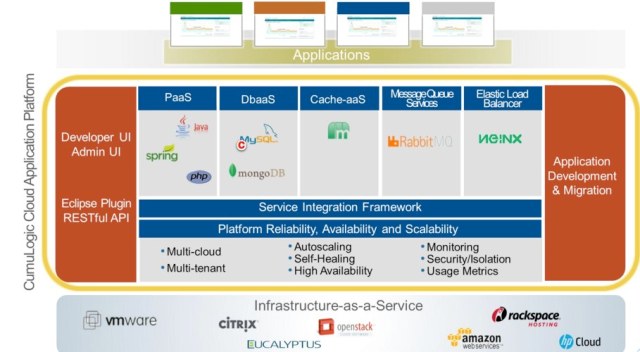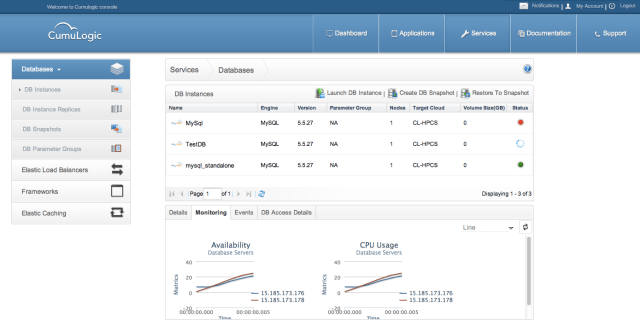CumuLogic is launching a new a modular service that provides customers with a way to choose what services to use on either a cloud or on-premise architecture. Executives say it gives customers a way to have AWS-style services behind the firewall.
CumuLogic is a layer that fits in any application development environment. It’s a platform that can integrate a PaaS, a database as a service (DBaaS) and other offerings for app development. CEO Mike Soby said that, like AWS, CumuLogic offers developers and operations people a choice for how they wish to build apps and have deployed.
It’s a pivot for CumuLogic away from a PaaS strategy to one about providing a modular platform that gives developers a choice. CumuLogic was founded in 2011. Its advisors include James Gosling, “the father of the Java programming language.” The company started as a PaaS that could be integrated into an infrastructure as a service (IaaS).
The new CumuLogic Cloud Application Platform sits on top of an infrastructure as a service (IaaS) environments such as VMware, Citrix, Eucapyptus, Amazon Web Services, OpenStack, Rackspace, and HP Cloud. Hooks that suit the DevOps professional include monitoring, security and isolation capabilities, usage metrics and availability across multiple cloud services. It has a RESTful API and an Eclipse plugin that provide a services integration framework for adding a SaaS, such as New Relic for monitoring app performance.
It has modules for PaaS with support for Spring, Java and PHP. A database as a service (DBaaS) module provides support for NoSQL and mongoDB. It also provides modules for caching, MessageQue and elastic load balancer services.
VMware’s Cloud Foundry validated the metaphor for this type of modular platform. Earlier this month it took a new life with the news that VMware would be spun out as part of the Pivotal Initiative. It joined EMC Greenplum and the cast of other enterprise software offerings that VMware and EMC have packaged into one mega, analytics and app development suite.
Soby says customers love the idea that they can compose their development environment on top of their own internal infrastructure or on a service like AWS. What they also want is choice, something that Cloud Foundry does not provide.
It’s the choice that’s key here. It embodies why developers use AWS. They have the freedom to choose the stack they want to build without having to use one vendor’s tools.


